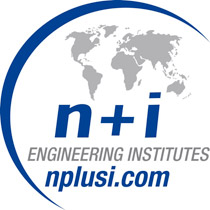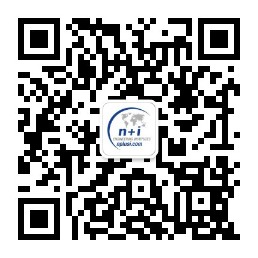
Master i ENSEEIHT Satellite, Radio communications and mobile, Telecommunications, Electronics
- Bachelor
- Master
- PostMaster
Official title: Satellite Communication Systems: from engineering to end-to-end systems (SATCOM systems)

ENSEEIHT
Training duration
2 years
Average academic cost found without insurance
18 000€
Accréditation:
Accreditation Provider: DGESIP
Prerequisite of the training
Bachelor (or equivalent)
Formation type
- Initial education
Domains
- Satellite, Radio communications and mobile, Telecommunications, Electronics
M1 section is taught by
- INP-ENSEEIHT
M2 section is taught by
- INP-ENSEEIHT
Training description
Since more than fifty years, satellite systems have demonstrated their excellence to collect and distribute data in a vast coverage area for the benefit of thousands of users. Within the global telecommunications industry, space communications display one of the most profitable businesses in permanent evolution. Companies of the sector, both system and service providers, are constantly looking for junior executives offering the expertise matching the specifics of satellite communications.
.
The SATCOM program aims to train autonomous graduates in the field of satellite telecommunications. The level of expertise acquired in electronics, digital communications, networks and systems allows them to quickly access positions of responsibility in this field and more generally in the field of telecommunications.
The program is taught in English and is built upon on the following foundations:
• A global approach of system design and analysis by taking into account the environments, the limitations and constraints, the interfaces and the expected performances,
• An expertise in the disciplines contributing to the design of these systems: electronics, digital communications, networking, etc.
• Simulation tools and field techniques,
• Development of applications for the space and embedded-system domains.
Toulouse being the French capital of Space, the Master program benefits of a unique research and professional environment. It also profits from the strong connections with the aerospace and defence industries developed by faculty members of ENSEEIHT.
The Master program is supported by major actors in the field of satellite communications (Airbus Defense and Space, Thales Alenia Space, CNES, SES, EUTELSAT, INMARSAT…). The teaching staff is composed of faculty members who are part of major French research laboratories and experts of satellite industry.
The main sector of activity is satellite telecommunications, but graduates can integrate into the entire field of telecommunications.
Graduates are mainly hired by the major European players in the field of satellite telecommunications (system and service providers): industrials (Thales Alenia Space, Airbus Defense and Space, etc.), agencies (CNES, DLR, ESA, etc.), operators (EUTELSAT, SES, INMARSAT). Large companies in the field of telecommunications in general such as Thales and Orange for example are also employers. Graduates are also recruited by SMEs such as: CLS, Silicom, Sigfox, etc.
As the course is taught in English, the n+i PIL (intensive courses of French during summer) isn't compulsory. But students who want to improve their French level can ask for an inscription to the PIL. Note that to get the French visa and to be able to adapt yourself in France, a minimum level A2 is compulsory. So students are encourage to take courses of French before coming.
Morover, the n+i PIM (semester of adaptation) isn't necessary for this English taught master.
Since more than fifty years, satellite systems have demonstrated their excellence to collect and distribute data in a vast coverage area for the benefit of thousands of users. Within the global telecommunications industry, space communications display one of the most profitable businesses in permanent evolution. Companies of the sector, both system and service providers, are constantly looking for junior executives offering the expertise matching the specifics of satellite communications.
.
The SATCOM program aims to train autonomous graduates in the field of satellite telecommunications. The level of expertise acquired in electronics, digital communications, networks and systems allows them to quickly access positions of responsibility in this field and more generally in the field of telecommunications.
The program is taught in English and is built upon on the following foundations:
• A global approach of system design and analysis by taking into account the environments, the limitations and constraints, the interfaces and the expected performances,
• An expertise in the disciplines contributing to the design of these systems: electronics, digital communications, networking, etc.
• Simulation tools and field techniques,
• Development of applications for the space and embedded-system domains.
Toulouse being the French capital of Space, the Master program benefits of a unique research and professional environment. It also profits from the strong connections with the aerospace and defence industries developed by faculty members of ENSEEIHT.
The Master program is supported by major actors in the field of satellite communications (Airbus Defense and Space, Thales Alenia Space, CNES, SES, EUTELSAT, INMARSAT…). The teaching staff is composed of faculty members who are part of major French research laboratories and experts of satellite industry.
The main sector of activity is satellite telecommunications, but graduates can integrate into the entire field of telecommunications.
Graduates are mainly hired by the major European players in the field of satellite telecommunications (system and service providers): industrials (Thales Alenia Space, Airbus Defense and Space, etc.), agencies (CNES, DLR, ESA, etc.), operators (EUTELSAT, SES, INMARSAT). Large companies in the field of telecommunications in general such as Thales and Orange for example are also employers. Graduates are also recruited by SMEs such as: CLS, Silicom, Sigfox, etc.
As the course is taught in English, the n+i PIL (intensive courses of French during summer) isn't compulsory. But students who want to improve their French level can ask for an inscription to the PIL. Note that to get the French visa and to be able to adapt yourself in France, a minimum level A2 is compulsory. So students are encourage to take courses of French before coming.
Morover, the n+i PIM (semester of adaptation) isn't necessary for this English taught master.
Scolarships (Subject to the school offer)
Year 1:
The cost is 9000 euros. Scholarship through a reduction of the fees can be offered to students coming from partner universities. Exceptionally the same kind of scholarship can be given to top level student.Year 2:
The cost is 9000 euros. Scholarship through a reduction of the fees can be offered to students coming from partner universities. Exceptionally the same kind of scholarship can be given to top level student. The final internship is mandatory. If this internship is achieved in France, the students must be paid (minimum 550€/month but it can be more depending on the firm / institution where the internship in done).Satellite Communication Systems: from engineering to end-to-end systems (SATCOM systems)
Language level prerequisites
The minimum language level required, namely : B1 in English will be verified no later than end of April, 2026 An online interview will be proposed to check the French and English levels. (to be confirmed in your academic offer)
Course language
Only English
Language requirement to graduate
English B2
English B2
The student has to improve his French level of one level/year. The French level will be tested with local test in ENSEEIHT each beginning and end of year.
M1 Part
Location
INP-ENSEEIHT
2 rue Charles Camichel
31071 Toulouse
Average academic cost found without insurance
9000€
Core
| Credits | Hours | Language | |
|---|---|---|---|
| French | 2.00 | 14.00 | French |
| English | 2.00 | 17.00 | English |
| Conferences on aeronautics | 0.50 | 8.75 | English |
| Communicatin | 1.50 | 14.00 | English |
| Sport | 1.00 | 10.50 | French |
| Theory of distributions for signal processing | 2.00 | 17.50 | English |
| Probability / Statistics | 2.00 | 12.25 | English |
| Stochastic process | 2.00 | 15.75 | English |
| Basis of Programming/ Matlab | 1.00 | 14.00 | English |
| C programming | 1.00 | 14.00 | English |
| Microprocessor | 1.00 | 35.00 | English |
| VHDL digital design | 3.00 | 35.00 | English |
| Digital electronics project | 2.00 | 28.00 | English |
| Signal processing | 1.50 | 15.75 | English |
| Digital signal processing | 1.50 | 14.00 | English |
| Digital communications | 1.50 | 15.75 | English |
| Channel coding | 1.50 | 15.75 | English |
| Simulation of communication chains | 2.00 | 15.75 | English |
| Introduction to antennas and RF measurements and instrumentation | 1.00 | 31.50 | English |
Core
| Credits | Hours | Language | |
|---|---|---|---|
| French | 2.00 | 17.50 | French |
| English | 1.50 | 17.50 | English |
| Conferences on space and aeronautics | 0.50 | 8.75 | English |
| Sport | 1.00 | 10.00 | French |
| Digital electronics project | 3.00 | 22.75 | English |
| Front-end acquisition | 3.00 | 26.25 | English |
| Optoelectronics | 2.00 | 21.00 | English |
| Laser and optical fiber sensing techniques | 1.00 | 17.50 | English |
| Practical Hyper / Opto | 1.00 | 17.50 | English |
| Antennas | 1.50 | 14.00 | English |
| Passive RF | 1.00 | 14.00 | English |
| Active RF circuits | 1.00 | 14.00 | English |
| MEMS | 2.00 | 17.50 | English |
| Microwave system project | 1.50 | 21.00 | English |
| Mobile communications | 4.00 | 66.50 | English |
| Telecommunication Project | 2.00 | 26.25 | English |
| Satellite project | 2.00 | 26.25 | English |
M2 Part
Location
INP-ENSEEIHT
2 rue Charles Camichel
31071 Toulouse
Average academic cost found without insurance
9000€
Core
| Credits | Hours | Language | |
|---|---|---|---|
| Satellite communications Business & regulation & space law | 3.00 | 31.50 | English |
| Project management | 1.50 | 19.25 | English |
| Tutored project | 3.50 | 68.25 | English |
| Network & Telecom. Protocols | 2.00 | 24.50 | English |
| Advanced digital communications | 2.00 | 24.50 | English |
| Spread Spectrum Techniques | 1.50 | 12.25 | English |
| Digital filter banks | 1.50 | 10.50 | English |
| RF Satelllite channel | 1.00 | 14.00 | English |
| Digital receivers & SDR technology | 2.00 | 19.25 | English |
| Satellite communications | 1.00 | 12.25 | English |
| Satellite payloads & Ground segment | 2.00 | 43.75 | English |
| Missions, platform and operations | 2.00 | 18.00 | English |
| Optical satellite communications | 1.00 | 8.75 | English |
| Satellite based computer networks | 2.00 | 17.50 | English |
| Mobile & multimedia satellite communications | 2.50 | 27.75 | English |
| Introduction to satellite Navigation | 1.50 | 12.25 | English |
Core
| Credits | Hours | Language | |
|---|---|---|---|
| Internship | 30.00 | English |
